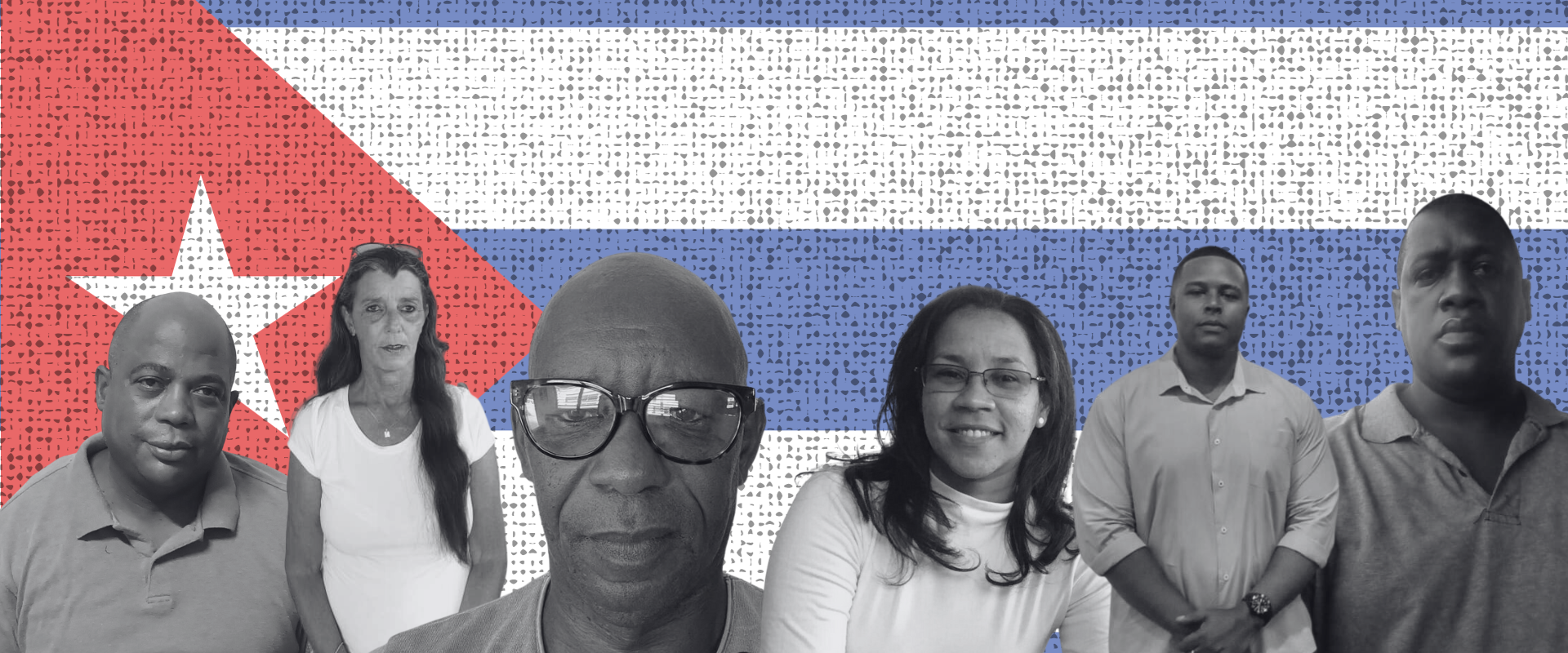The Strategies Employed by Cuba’s Authoritarian Regime to Restrict Mobility and Silence Dissident Voices
Prohibitions on leaving the Island, arbitrary detentions, and heavy fines are part of the tactics implemented by Cuban authorities.

Washington, DC, October 11, 2023 – In 2019, five activists out of the six interviewed for this article were banned from leaving the island by Cuba’s authoritarian regime. The coordinator of the Red de Líderes y Lideresas de Cuba (RELLIC), María Elena Mir Marrero, was prevented from boarding a plane under the argument that she was regulated. The vice-president of the Consejo para la Transición Democrática en Cuba, Manuel Cuesta Morúa, was also prevented from flying to Belgium that same year. Osvaldo Navarro, member of the Comité Ciudadanos por la Integración Racial (CIR), was informed, before his flight date, that he was regulated. Marthadela Tamayo, also a member of CIR, was not allowed to board, being told that she had been fined and had to pay up before traveling abroad. And the National Coordinator of the CIR, Juan Antonio Madrazo, was not allowed to leave Cuba at that time either, because he was one of the regulated persons. They were trying to leave the country to denounce the serious social, political, economic, and rights crisis in this country, which has worsened in recent years.
But that has not been the only time that María Elena, Manuel, Osvaldo, Marthadela, and Juan Antonio have tried to travel outside the island to participate in academic spaces, assemblies, and dialogues, where human rights violations recorded in this country are addressed. After 2019 they have tried again and have been detained inside their homes or upon arrival at the airport. All with the aim of preventing them from boarding their flights. They have also been repeatedly told that they are regulated and are prohibited from traveling to another country, unless they want to leave and never return to the island.
In July of this year, the coordinator of the Centro de Estudio, Liderazgo y Desarrollo (Celide), Fernando Palacio, tried to travel to Trinidad and Tobago, and while inside the airport the Cuban authorities informed him that he was not regulated, but he could not leave the country because the commemoration of the Assault on the Moncada Barracks, an armed action carried out on July 26, 1953 by a group of young people led by Fidel Castro, to overthrow Fulgencio Batista, was approaching. Fernando is the other human rights defender interviewed for this article.
“The term regulation is a euphemism that the regime uses to prevent activists from leaving the country,” says Marthadela, who also maintains that it is an arbitrary measure. “As a human being you feel powerless, you feel fragile before a state that has all the power to decide when you leave, when you enter, when they put you in prison, when they take you out of prison…”, reflects Osvaldo. That, he says, is what he has felt every time he is notified that he is regulated.
A report released by the Office of the UN High Commissioner for Human Rights, which reveals that more than 220 people and 25 organizations around the world suffered reprisals for cooperating with the United Nations, mentions the human rights violations suffered by Juan Antonio and Marthadela. The document points out that in the last year Cuban authorities prevented the two from leaving the country, and this has hindered their engagement with the UN, “including the current preparations for the fourth cycle of the Universal Periodic Review of Cuba, scheduled to take place in November 2023,” the report states.
From One Province to Another
The six human rights defenders who were consulted also say that state authorities have prohibited them from moving from one province to another. In 2008, Fernando was banned for two years from visiting Holguín. He was notified of the measure after being detained and held incommunicado for almost a week. Marthadela cannot go to that same region, even though she is a native of that part of the country. María Elena and Juan Antonio have been arbitrarily detained every time they go to Santiago de Cuba, while the authorities do not allow Manuel to travel to Villa Clara.
The Cuban state has restricted the mobility of this group of activists, who were also expelled from their jobs for being dissident voices against Cuba’s political system. All in order to silence them and prohibit them from continuing their struggle for a “free country”.
“I dream of a real Cuba, where we as mothers can raise our children, see them grow and develop. I dream of a Cuba full of freedoms, where the population is not oppressed, where each and every one of the laws that the country itself regulates is complied with. I dream of a free Cuba”, says María Elena, who has not seen her son for more than a year, nor her grandson or daughter-in-law. All three left the country because of the serious situation on the island.
From the Institute on Race, Equality and Human Rights (Race and Equality) we reject the strategies of unjustified restrictions on mobility implemented by the Cuban State, whose sole purpose is to silence activists, human rights defenders, artists, independent journalists, jurists, and, in general, all dissident voices. We also urge the international community to follow up on the denunciations of Cubans who have suffered repression and harassment on the island, and to condemn these tactics carried out by the authoritarian regime of Cuba.

